Cabinet reshuffle
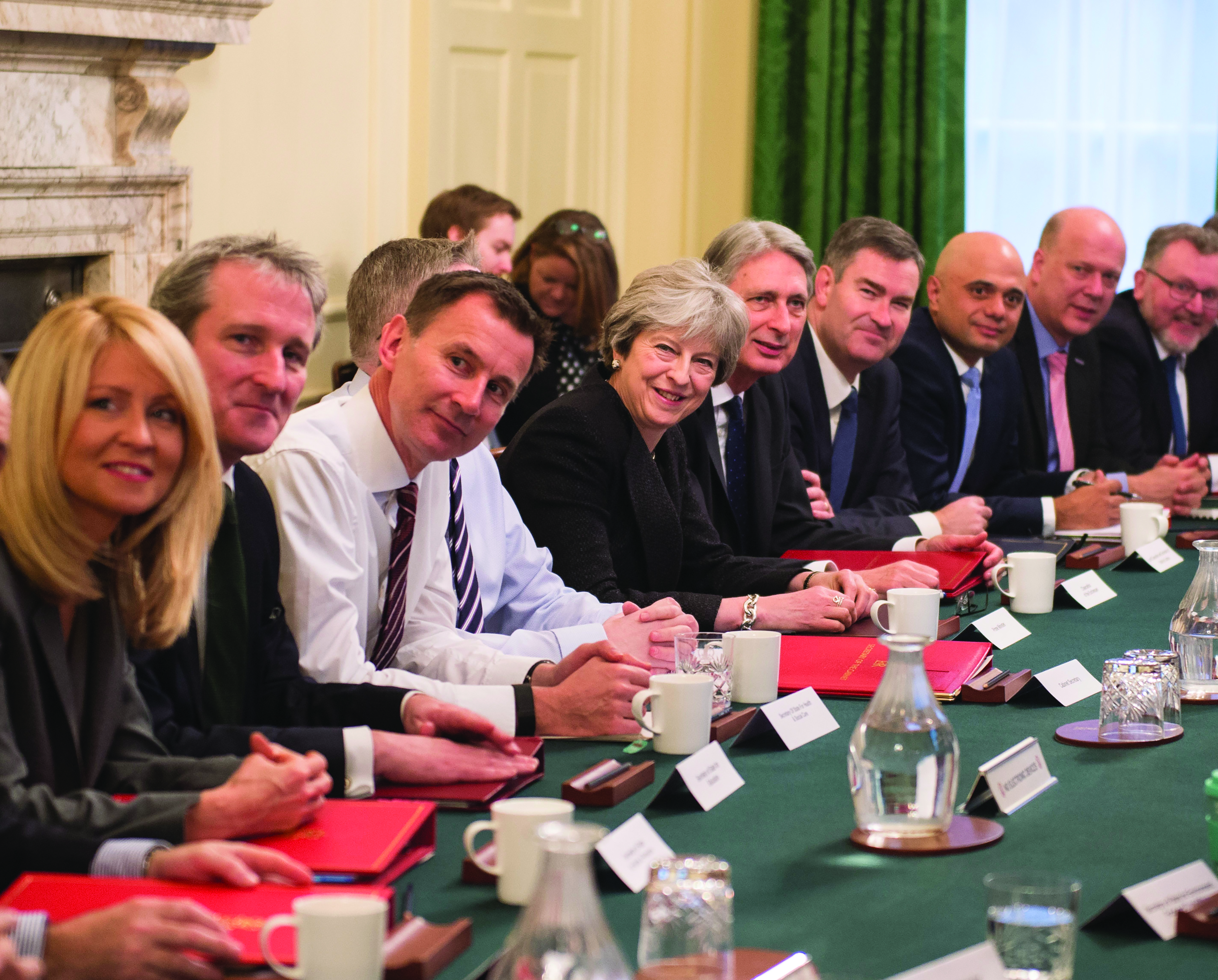
Theresa May’s bid to reassert her authority on her cabinet following the conclusion of phase one of the Brexit negotiations was met with a level of resistance. agendaNi outlines the main changes.
Since losing her majority in the June 2017 election, Prime Minister Theresa May has laboured on in trying to hold together her cabinet despite cracks being wedged by Brexit.
The reshuffle was marked as a chance for May to re-stamp her authority in key positions and prime those she deems with leadership talent within the party for future roles.
However, little changed at the top. May made no changes to what are viewed as the top four positions. Chancellor Philip Hammond, Foreign Secretary Boris Johnson, Home Secretary Amber Rudd and Brexit Secretary David Davis all remain in place. As did Transport Secretary Chris Grayling and Commons Leader Andrea Leadsom.
ed shifts by May appear to have been jilted. Thoughts that Health Secretary Jeremey Hunt would be moved to Business, Energy and Industrial Strategy, appear to have been the centre of an hour-long negotiation with the PM before Hunt emerged with a widened brief to include social care.
Education Secretary Justine Greening defied the attempt to switch her to the Department of Work and Pensions by resigning.
May was successful in her attempts to make the cabinet younger and more diverse. Six men and eight women were new additions to government, including five from ethnic minorities and 11 who were elected in 2015.
However, Downing Street’s claim that the cabinet better reflected the make-up of society were met by critics who pointed out that more than a third of the new cabinet were educated privately.
Those taking up new positions include:
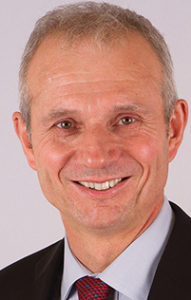 David Lidington
David Lidington
Minister for the Cabinet Office and Chancellor of the Duchy of Lancaster
Lidington has been moved in to the Cabinet Office after only six months as Lord Chancellor and Secretary of State for Justice. Lidington is expected to take up many of the responsibilities abdicated by Damian Green, sacked after he gave misleading statements over pornography that was found on his House of Commons computer in 2008. Previously he held roles as Shadow Secretary of State for Northern Ireland from 2003 to 2007 and Shadow Minister for Foreign and Commonwealth Affairs from 2007 to 2010. He served as Minister of State at the Foreign & Commonwealth Office (FCO) from May 2010 until July 2016. David was Leader of the House of Commons and Lord President of the Council from July 2016 to June 2017.
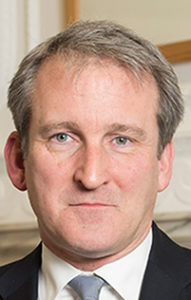 Damian Hinds
Damian Hinds
Education Secretary
Hinds replaces the now resigned Justine Greening. The East Hampshire MP previously oversaw the roll out of universal credit in the Department for Work and Pensions. His previous education background include membership of the Education Select Committee until 2012 and chairing the All-Party Parliamentary Group on Social Mobility, a cause championed by May. He previously served as Assistant Government Whip from July 2014 until March 2015, Exchequer Secretary to the Treasury from May 2015 until July 2016.
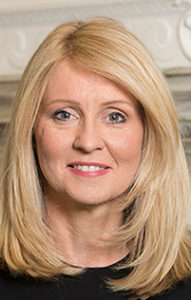 Esther McVey
Esther McVey
Work and Pensions Secretary
Having lost her seat in 2015, the former television presenter, was elected for her new constituency of Tatton in 2017. McVey previously sat around the cabinet table as Minister of State for Employment under David Cameron until 2015 and was appointed by May as Treasurer of HM Household (Deputy Chief Whip) before her current role.
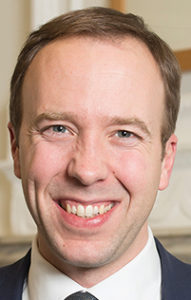 Matt Hancock
Matt Hancock
Culture Secretary
The new Secretary of State for Digital, Culture, Media and Sport was previously demoted from the cabinet table by May on her appointment, serving as Minister of State for Digital from July 2016 to January 2018. Prior to that he served in a number of ministerial roles including for skills and business, and as Paymaster General.
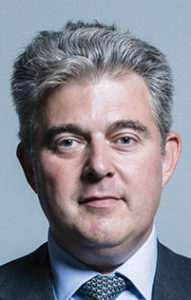 Brandon Lewis
Brandon Lewis
Party Chairman
A minister without portfolio, Lewis is believed to have been a key figure in May’s leadership campaign. Having worked under May in the Home Office, he was elevated to cabinet last year as Immigration Minister. His previous posts include Parliamentary Under Secretary of State at the Department for Communities and Local Government from September 2012 until July 2014 and as Minister of State for Housing and Planning at the Department for Communities and Local Government from July 2014 until July 2016.
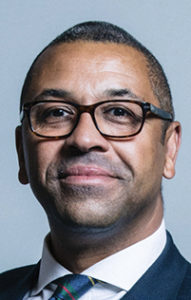 James Cleverly
James Cleverly
Deputy Party Chair
Elected only in 2015, Cleverly backed Boris Johnson’s original leadership bid but has since thrown his significant social media clout behind May and her government. Cleverly was a former London Assembly leader for the Conservatives.
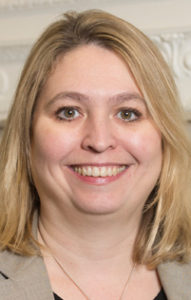 Karen Bradley
Karen Bradley
Northern Ireland Secretary of State (SoS)
Replacing James Brokenshire, who resigned his position in the cabinet due to ill-health, Bradley, 47, has been the MP for Staffordshire Moorlands since May 2010. Having previously worked in the Home Office under Theresa May as a minister since 2014, Bradley was appointed Culture Secretary in July 2016.
Taking up the post a year after Stormont dissolved, the SoS has described her new role in Northern Ireland as a “great honour” and pinpointed a reformation of the Northern Ireland Executive as her “top priority”. Bradley will chair fresh talks in an attempt to break the current deadlock and has described the process as urgent. She will be required to will update parliament on progress of Stormont talks by 7 February but has not indicated this as an official deadline for a resolution.
Junior ministerial team moves
Up
 Sam Gyimah
Sam Gyimah
(East Surrey) Joint Minister for Higher Education at the Department for Business, Energy and Industrial Strategy and the Department for Education.
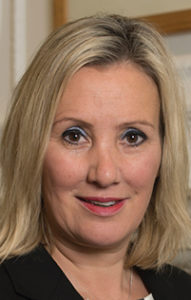 Caroline Dinenage (Gosport, Stubbington, Lee-on-the-Solent and Hill Head)
Caroline Dinenage (Gosport, Stubbington, Lee-on-the-Solent and Hill Head)
Minister of State at the Department of Health and Social Care.
Stephen Barclay (North East Cambridgeshire)
Minister of State for the Department of Health and Social Care.
Margot James (Stourbridge)
Minister of State for the Department for Digital, Culture, Media and Sport.
Harriett Baldwin (West Worcestershire)
Minister of State for Africa at the Foreign and Commonwealth Office and Minister of State at the Department for International Development.
Michael Ellis (Northampton)
Parliamentary Under-Secretary for the Department for Digital, Culture, Media and Sport.
Andrew Griffiths (Burton)
Parliamentary Under-Secretary for the Department for Business, Energy and Industrial Strategy.
Heather Wheeler (South Derbyshire)
Parliamentary Under-Secretary for the Department for Housing, Communities and Local Government.
Graham Stuart (Beverley and Holderness)
Parliamentary Under-Secretary for the Department for International Trade.
Stuart Andrew (Pudsey)
Parliamentary Under-Secretary for the Wales Office.
New
Rishi Sunak (Richmond) Parliamentary Under Secretary of State at the Ministry of Housing, Communities and Local Government.
Suella Fernandes (Fareham) Parliamentary Under-Secretary for the Department for Exiting the European Union.
Lucy Frazer (South East Cambridgeshire)
Parliamentary Under-Secretary for the Ministry of Justice.
Oliver Dowden (Hertsmere) Parliamentary Secretary for the Cabinet Office.
Kit Malthouse (North West Hampshire)
Parliamentary Under-Secretary for the Department for Work and Pensions.
Robert Jenrick (Newark)
Exchequer Secretary for the HM Treasury.
Nadhim Zahawi (Stratford-on-Avon)
Parliamentary Under-Secretary for the Department for Education.
Shailesh Vara (North West Cambridgeshire)
Parliamentary Under-Secretary for the Northern Ireland Office.
Nusrat Ghani (Wealden) Parliamentary Under-Secretary for the Department for Transport and Assistant Whip for the HM Treasury.
Sideways
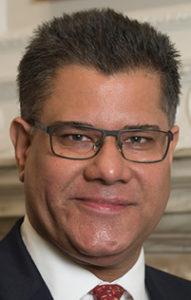 Alok Sharma (Reading West)
Alok Sharma (Reading West)
Minister of State for Employment at the Department of Work and Pensions
Dominic Raab (Esher and Walton) Minister of State for Housing at the Ministry of Housing, Communities and Local Government.
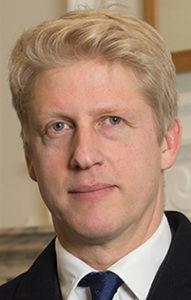 Jo Johnson (Orpington)
Jo Johnson (Orpington)
Minister of State at the Department for Transport and Minister for London.
Rory Stewart (Penrith and The Border)
Minister of State for the Ministry of Justice.
Chloe Smith (Norwich North)
Parliamentary Secretary for the Cabinet Office.
Guto Bebb (Aberconway) Parliamentary Under-Secretary for the Ministry of Defence.
John Glen (Salisbury)
Economic Secretary for the HM Treasury.





